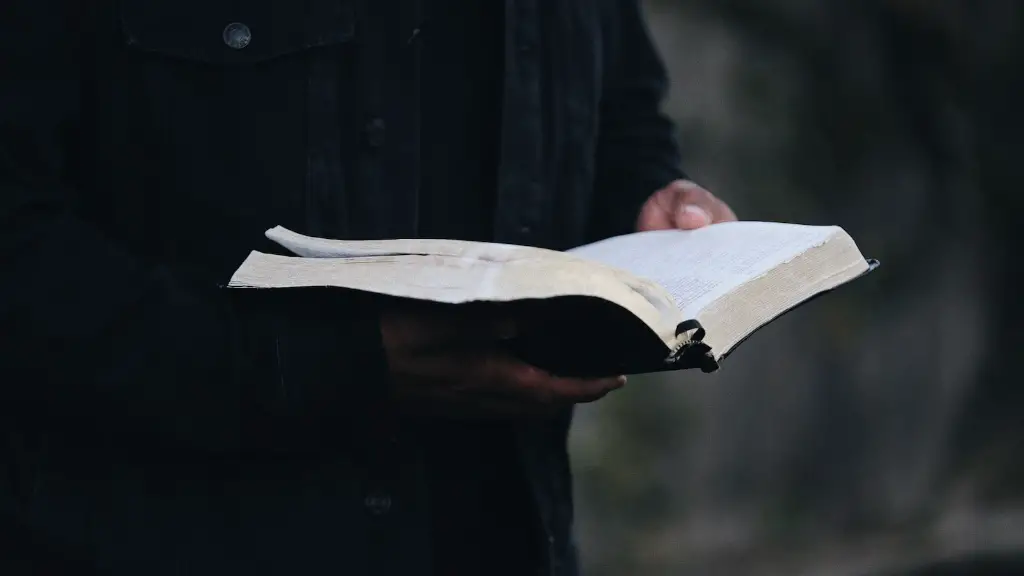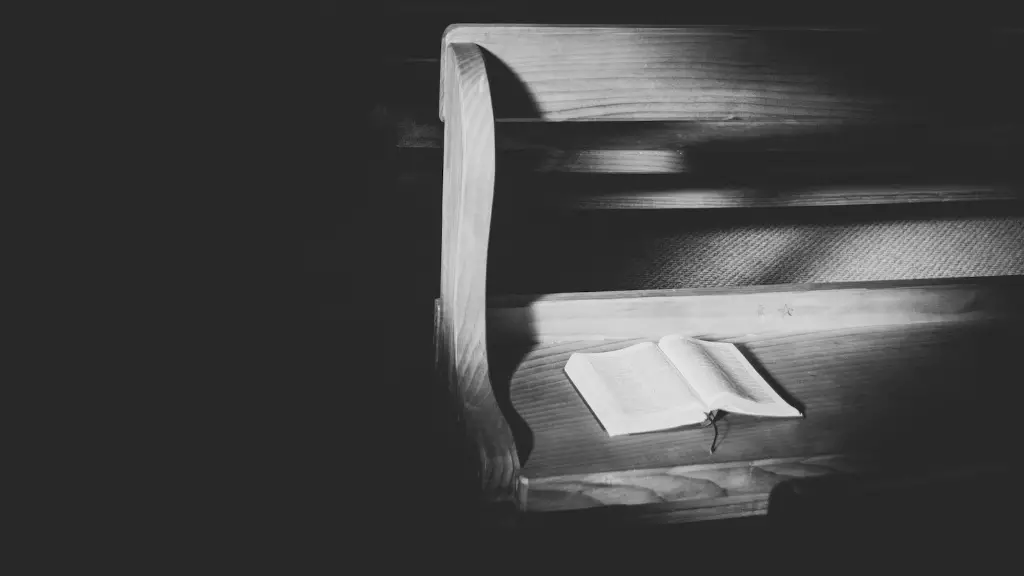As cremation continues to become popular in the United States and much of the world, many individuals are left wondering if the Bible says cremation is wrong or if it can be done in good conscience. The Bible does not explicitly mention cremation, so it’s important to understand the theological arguments behind this practice.
The Bible does state that the body should be properly memorialized: “For since death came through a man, the resurrection of the dead comes also through a man. For as in Adam all die, so in Christ all will be made alive” (1 Corinthians 15:21-22). This can be interpreted as a mandate to properly bury the dead, regardless of whether the body is cremated or buried in a grave. In some Christian faiths, burial is seen as a way of honoring God for his gift of eternal life and paying respect to the dead. In other faiths, such as Hinduism, cremation is seen as a way of purifying the corpse before its journey to the afterlife.
On the other hand, some theologians argue it is acceptable to cremate a body due to the belief that the soul is what is truly important and the body is just a temporary vessel. This view derives from a belief in the Resurrection — the idea of a physical body being resurrected by God in a process of transformation. Under this interpretation, the body is simply a vessel, and it no longer matters in an afterlife whether it is buried or cremated.
Other theologians point to the Jewish tradition of burying a body as soon as possible after death, as a sign that a human should not take control of God’s will. This suggests that it is not the role of the living to decide how to dispose of the body, since it is ultimately in God’s hands. By closely following the traditional burial process, a person is paying tribute to God’s will.
In the end, individuals must make their decision on cremation and burials based on their own understanding of the Bible and their own beliefs. Although the Bible does not give a definitive answer as to whether cremation is allowed or forbidden, individuals should consider the theological arguments for and against the practice and ultimately arrive at a decision that they feel right in their own conscience.
Arguments For Cremation
One of the main arguments for cremation is its environmental impact. Burying a body requires a lot of chemicals, including embalming fluid, as well as a large amount of land while cremation requires drastically fewer resources and energy than traditional burial. Additionally, cremation requires fewer resources than embalming, and generates much less waste.
Cremation also poses many financial and logistical benefits as opposed to burials. Cremation is typically much less expensive than a traditional burial, which often includes a viewing for friends and family and a service. Arrangements for a traditional burial can take weeks or even months to sort out and the financial burden can be quite large, whereas cremations are often conducted the same day or within days of the death. Cremations also usually require far fewer people to be present and offer more flexibility in terms of when, where, and how the service is conducted.
Cremation has become increasingly popular in the United States due to the many benefits it provides. Cremation is viewed by some as a more “modern” means of disposing of a body, and it is often seen as a more affordable, discreet, and simpler way to memorialize a loved one.
Arguments Against Cremation
One of the main arguments against cremation is that it is seen as a desecration of the body, as opposed to a traditional burial, which is seen as properly honoring the dead. For example, some religions place a large emphasis on honoring the dead by burying them, and those who do not believe in a resurrection view it as disrespectful to cremate a body. Additionally, some believe that cremation implies that an individual has been “erased” from existence and that their memory is no longer preserved.
Cremation is also seen by some as a form of self-mutilation, an abomination that goes against the teaching of many religions. This view is grounded in the belief that the body is a sacred vessel and should be treated with respect and care. As such, some religions, such as the Catholic Church, forbid the practice of cremation.
In addition, some cultures and religions also view cremation as an offense to the deceased, as it destroys the opportunity for the body to be resurrected or seen in its original form. For those who do not believe in the resurrection, cremation can be seen as an insult to the deceased. Furthermore, some individuals believe that the proper respect for a deceased individual should be shown by burying the body and honoring their memory with a proper service.
The Impact of Modern Day Technology
In recent years, modern advances in technology have created a new option for disposing of a body: body donation. Body donation is when a person donates their body to science or medical research. This option allows individuals to donate their bodies in order to have a lasting impact on the world and potentially save lives. This is seen as a way of honoring the dead while simultaneously helping others.
Although body donation has become more accepted in recent years, it is important to note that body donation comes with its own set of rules and regulations. Some organizations may only accept bodies for a specific purpose or for a limited amount of time. It is important to contact the appropriate organization first before making any arrangements.
Overall, modern technology has opened the door to many new options for disposing of a body. Those who are looking for an alternative to the traditional burial or cremation may consider body donation as an option. However, it is important to understand the rules and regulations associated with body donation before making any arrangements.
Other Disposal Options
Other disposal options exist as well such as a green burial. A green burial allows individuals to bury the body without embalming fluid and without a casket in a natural, biodegradable container. This reduces the environmental impact of a traditional burial, allows for a more personal experience for family and friends, and gives the opportunity to express emotion in a physical way.
Additionally, there are also options such as sea burial, alkaline hydrolysis, and natural water burial, which allow for an even more unique way to honor the dead. Sea burial, for example, allows for individuals to launch the deceased’s ashes into a body of water and honor them in a meaningful way with a ceremony.
No matter the option chosen, it is clear that individuals have many disposal options to choose from when it comes to honoring their loved one’s death. While the Bible does not explicitly mention cremation, individuals must consider their own beliefs and interpretations to decide what is right for them.
Legality of Cremation
When making the choice to cremate or bury a body, individuals must also consider the legality of both choices in their state. In the United States, cremation is legal in all 50 states and is typically handled by a funeral director or a cremation services provider. However, it is important to note that many states have strict regulations regarding cremation and it is important to become familiar with these laws before making any arrangements.
In addition, some states have restrictions on who can authorize a cremation, as well as the types of containers that can be used for the cremated remains. It is important to research the regulations in your state before making any arrangements for a cremation. Additionally, it is important to work with a reputable and knowledgeable cremation services provider in order to ensure that the cremation process is conducted properly and according to the law.
Final Considerations
Regardless of whether an individual decides to cremate or bury their loved one, it is important to understand the pros and cons of each option and to consider a few key points when making a decision. These include the religious and cultural aspects, the environmental impact, the cost, and the legal ramifications. When faced with the difficult decision of cremation vs. burial, individuals should make the choice that feels right in their own conscience.





